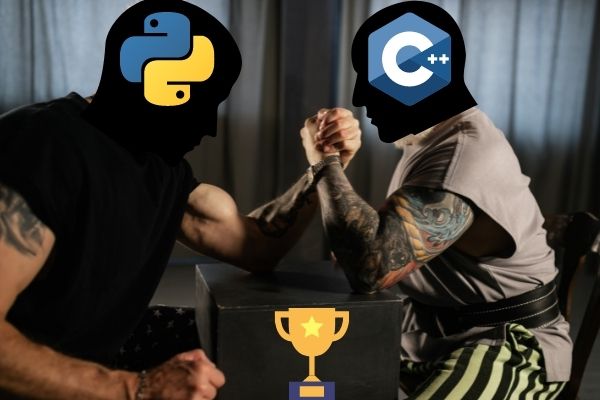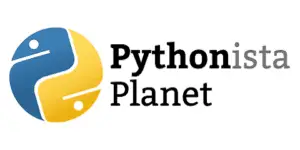As programmers, we all know how versatile Python can be. But in some cases, Python may or may not be the best language to use. It might be surprising to many new programmers fascinated by Python as it has found its implementation everywhere.
So, the question in the discussion here is, Is Python really useful in competitive coding? Is Python the best language for it? If it is not, what languages are the best? Let’s get this ball rolling.
Should You Choose Python for Competitive Coding?
Python is used almost in every domain. Learning Python would allow you to work in any domain that you find interesting. Python has a quicker development time. It also has an excellent community to learn and resolve your errors.
Python is a good language for programming in general but, to be honest, it is not the best language for competitive coding.
If you are an absolute beginner and want to do coding challenges to get good at programming, you can choose Python as it is one of the easiest languages to learn. But if you’re more serious about competitive programming and want to compete in coding competitions, then it’s better not to go with Python.
Yes, Python is used in competitive coding and helps the programmer handle complex data structures. But to understand why it might not be the best, we need to have a little peek at what goes into competitive coding.
Let’s look at what features are expected in a language to be preferred in competitive coding.
Challenges in Competitive Coding
Competitive coding questions are usually designed to test the programmers’ problem-solving ability and fluency in data structures. At the same time, the challenges may include completing the problem within the specified time and space complexity. This is where other languages outshine Python.
Some of the desired features to make the language flexible over time, space, and manipulation of data structures are:
- Flexibility and high control of memory allocation
- Faster memory access
- Easier address retrieval
- Simplification of complex data structures
- Execution time
- Space efficiency
Issues With Python in Competitive Programming
Some of the problems that we face while using Python in competitive programming are:
Python Is Slow at Execution Time
Python is a high-level language. This means it is farther from the hardware when compared to other low-level programming languages. Since the hardware is less accessible, the time to access and store variables in the memory is high. This decreases the overall speed of execution.
Not only the memory but also accessing the ALU and other hardware necessary for the execution of the program is accessed slower than in a lower-level programming language.
In competitive programming, one of the most important factors to measure the efficiency of the code is the execution time of the program. Python programs take a long time to execute, so they are not the best choice for a language in competitive programming.
Memory Allocation
Python is a dynamically-typed language, and most data types are flexible, so the memory allocation is not fixed. Hence Python might not be suitable for memory-intensive tasks as the memory allocation is not fixed.
Another important metric for code efficiency is its memory deallocation and consumption. Because of dynamic data types, this is heavily affected in Python programs.
Runtime Errors
Python is an interpreted language. This means that it does not require a compiler. The language is directly compiled and run simultaneously with the help of an interpreter.
So any errors in the program will not be visible until the program is run in its entirety. This is a problem for competitive programmers.
In programming languages like C++, syntax errors and improper brackets can be found in the process of compilation. Logical errors can be taken care of after running the program.
Since Python is interpreted and dynamically typed, many errors can be seen only by running the program. If a program is half erroneous, the code before the errors may execute.
If it causes permanent change to documents or files without following the entire logic of the program, then it would be hard to acquire the desired results.
Best Programming Languages for Competitive Coding
A programming language is just a tool, and you shouldn’t be religious about any programming language. The core concepts are similar in almost all programming languages. You need to be flexible in switching between languages according to your needs.
When you choose a programming language for competitive coding, choose the best option available for that purpose.
So, if Python is not the best choice for competitive coding, what are the alternatives? Let’s look at the best programming languages for competitive coding.

1. C++
According to me, C++ is the best choice for competitive programming as it is very fast in execution. In competitive coding, even the fractions of seconds matter. C++ will be the ideal choice if you want to execute your programs faster.
C++ is a low-level language compared to Python. It has better memory access than Python as it is closer to the hardware. C++ is used for object-oriented programming, but you can also write procedural code with C++ just like you do with C.
C++ provides shorter syntax compared to C, so it is more preferred by programmers. C++ also has all the features of C, along with many additional features. Hence, C++ is preferred over C for competitive coding.
C++ has a concept called STL (Standard Template Library). STL contains basic templates of complex data structures like a linked list, trees, and even containers like sets, maps, stacks, queues, etc. These libraries are flexible and can provide the optimal balance between speed and memory efficiency.
Most competitive programmers prefer C++ as their choice. If you are getting started in competitive coding, C++ will be the ideal choice.
2. C
C can be a wise choice to start learning to code in general. C is a low-level language (compared to Python and Java). Generally, in coding competitions, the goal would be to create a function to achieve a solution using logic.
As C is highly function/method oriented, it is easy to use in competitive programming. C is closer to hardware than most languages and provides the best memory access and manipulation. Also, due to the easy memory access, the execution speed of a C program is significantly high.
Unlike Python, C does not provide extensive inbuilt libraries for complex data structures. So coders have to build their own from scratch, making it flexible and can be specialized to our specific problem.
One disadvantage that programmers face is that the syntax is large, and complex programs are time-consuming to code. Hence, the programmer might find it hard to type within the stipulated time, and detecting errors in the program will be time-consuming.
3. Java
Java is a good programming language for competitive programming as it is not as dynamic as Python, meaning that it does not lead to problems in memory allocation.
Java has a vast library set containing useful inbuilt functions, data types, and data structures to use in competitive programming. Java is one of the highly preferred languages because of its well-known exception handling and contains a variety of containers.
Java is slightly slower than C++ but overall not a bad choice for competitive programming as it is insignificant most times. Java is faster in execution time compared to Python.
One of the biggest advantages of using Java is its BigInteger, Regular expressions, and geometry library modules. These lessen the work of the programmers by providing useful inbuilt functions to perform some standard tasks.
Final Thoughts
Competitive programming is a vast area with a lot of scope for learning. Learning the right programming language to invest your time is very important. If you are already here, you might have started working on it already.
Whatever language you choose for your competitive programming, make sure it is fun for you to learn and write code in it. At the same time, it needs to be useful and efficient.
I wish you the best in your competitive coding endeavors. Happy coding!


Thanks for sharing knowledge